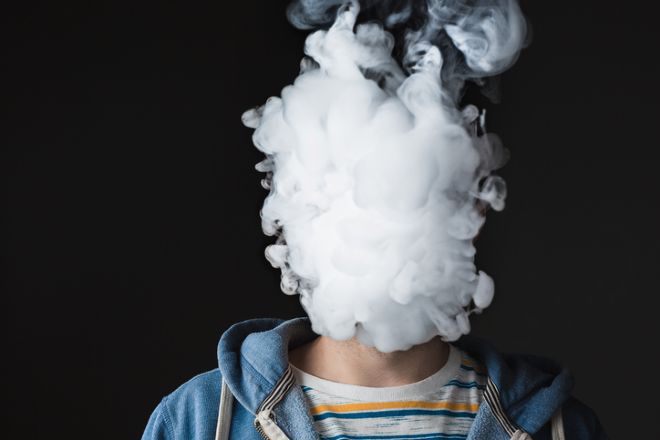From the July/August 2018 Net Assets magazine
The following is an excerpt of the article "The More You Know," which covers nine additional topics (see box below).
This information is provided for general educational purposes only. It should not be relied upon as, or in place of, legal advice. The authors and reader do not have an attorney/client relationship. Readers are encouraged to work with their legal counsel when addressing specific issues.
By Suzanne Bogdan, Fisher Phillips
A student has her head down and is moaning. She says she vaped and does not feel well. You search her locker and backpack and find three pods containing a substance you cannot identify. The student admits to vaping “cherry spice” at school and says she bought the vaping device from another student. This isn’t the first issue your school has had involving students vaping, and it wishes to send a message by expelling both students. Is this wise?
Vaping is the use of a battery-operated device to inhale an aerosol, often containing nicotine, flavorings, marijuana or other chemicals. The devices are often called electronic cigarettes, and students may call them e-cigs, hookas or Juuls, the name of a trendy brand that looks like a USB charger. While they can resemble traditional tobacco products, the newer products look markedly different and are often very small, sleek and discreet.
Because vaping and drug use are increasing nationwide, schools should focus on this issue now. Update your student handbook to ensure that vaping is covered in the various ways it may arise. Thus, add a vaping policy and tweak your policies on drug and alcohol use, tobacco and e-cigarettes, unlawful behavior and off-duty conduct. Be sure the policies are written using language that is broad enough to give your school the appropriate discretion to address the behaviors in question without listing every possible nuanced situation that may arise.
And remember not to act impulsively when inappropriate behavior occurs. With any serious discipline (probation, suspension or dismissal), independent schools must ensure “fundamental fairness” to reduce the risk of a court overturning your decision. Ask
- Is there a policy or rule that addresses or prohibits the specific behavior in question?
- Was there a proper investigation of the alleged violation of the rule?
- Was the accused student asked for his/her side of the story?
- Was the discipline imposed in a manner consistent with both the policy and investigation?
- Did the school act in an arbitrary or capricious manner (i.e., did it follow precedent and was the level of discipline appropriate for the circumstances)?
It is only by having good policies and processes, and educating your community on the concerns and consequences of vaping, that you will be able to reduce this unhealthy behavior within your community.





